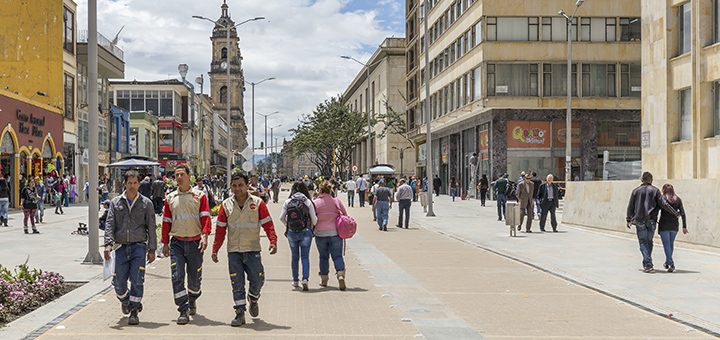
CHANGES IN COLOMBIAN MIGRATORY REGULATIONS
- Posted by Colombia
- On Thursday January 9th, 2020
- 0 Comments
During the last months of 2019, Migración Colombia issued a series of new regulations in Colombia regarding the entry of foreign citizens to the country. One of the most discussed norms is Resolution No. 3167 of 2019, which modified the regulation regarding the Entry and Permanence Permit (Permiso de Ingreso y Permanencia – PIP).
The Entry and Permanence Permit, a permit granted to foreigners exempted from a Colombian visa when they visit the country for short periods of time to develop nonprofit activities, was subdivided into three new types. The first type of PIP is a permit for tourism (Permiso de Turismo – PT) that is granted to foreigners who enter Colombia for recreation, medical treatment, attendance at events or conventions or to conduct business. The permit for tourism is granted for up to 90 calendar days, but it is possible to request an extension of the permit, provided that the foreigner does not remain in Colombia for more than 180 continuous or discontinuous days in a period of 12 months.
The second type of PIP is the integration and development permit (Permiso de Integración y Desarrollo – PID). This is granted to foreigners who wish to enter Colombia to develop international cooperation and assistance in the development and fulfillment of international agreements, participate in judicial processes or personnel selection, cooperate in activities of importance to Colombia, attend educational or training activities as students, to perform teaching activities, to carry out conferences or research, to practice journalism or for urgent cases in the opinion of immigration authorities. As with the permit for tourism, this permit is initially granted for up to 90 calendar days and can be extended for up to 180 continuous or discontinuous days in a period of 12 months, except when entered for an urgent cause,, in which the foreigner cannot exceed 15 days in Colombia.
The last PIP permit created by the resolution is the permit to develop other activities (Permiso para Desarrollar Otras Actividades – POA), which is intended for foreigners who enter Colombia to perform urgent technical assistance work that cannot be obtained in the country, perform tours or concerts, transit through the country to another destination or enter as crew members.
Additionally, new cards such as the border mobilization card and the electronic migration card for CAN and Mercosur were introduced. The first of these cards is intended for those foreigners who reside in countries bordering Colombia and who do not wish to settle in the country or develop activities that expressly require a visa. This greatly facilitates their entry into the country as it allows them to remain for a period of up to 7 continuous days in Colombia. This card is valid for two years. On the other hand, the electronic migration card for the CAN and Mercosur, as it name implies, is granted to foreigners residing in the Andean Community (CAN) or the Southern Common Market (Mercosur) member countries that wish to enter Colombia as tourists or to perform unpaid activities. This will be issued as a mechanism to facilitate entry to the country, in accordance to Colombian policies.
It is important to highlight that although these permits do not eliminate the need for visas for foreigners that need to carry out activities other than those listed in this article or for foreigners that do not have citizenship or residence in a country expressly exempt from Colombian visa, the new PIPs greatly simplify the procedures to access the country.
SRS Colombia offers immigration services with high professional standards and with the commitment to provide support to expatriates and their families in a personalized and efficient way.
References:
Unidad Administrativa Especial Migración Colombia. (2019, October 25). Por la cual se establecen los criterios para el ingreso, permanencia y salida de nacionales y extranjeros del territorio colombiano; además, los mecanismos y normas aplicables en el proceso migratorio colombiano. [Resolución No. 3167 de 2019]




0 Comments